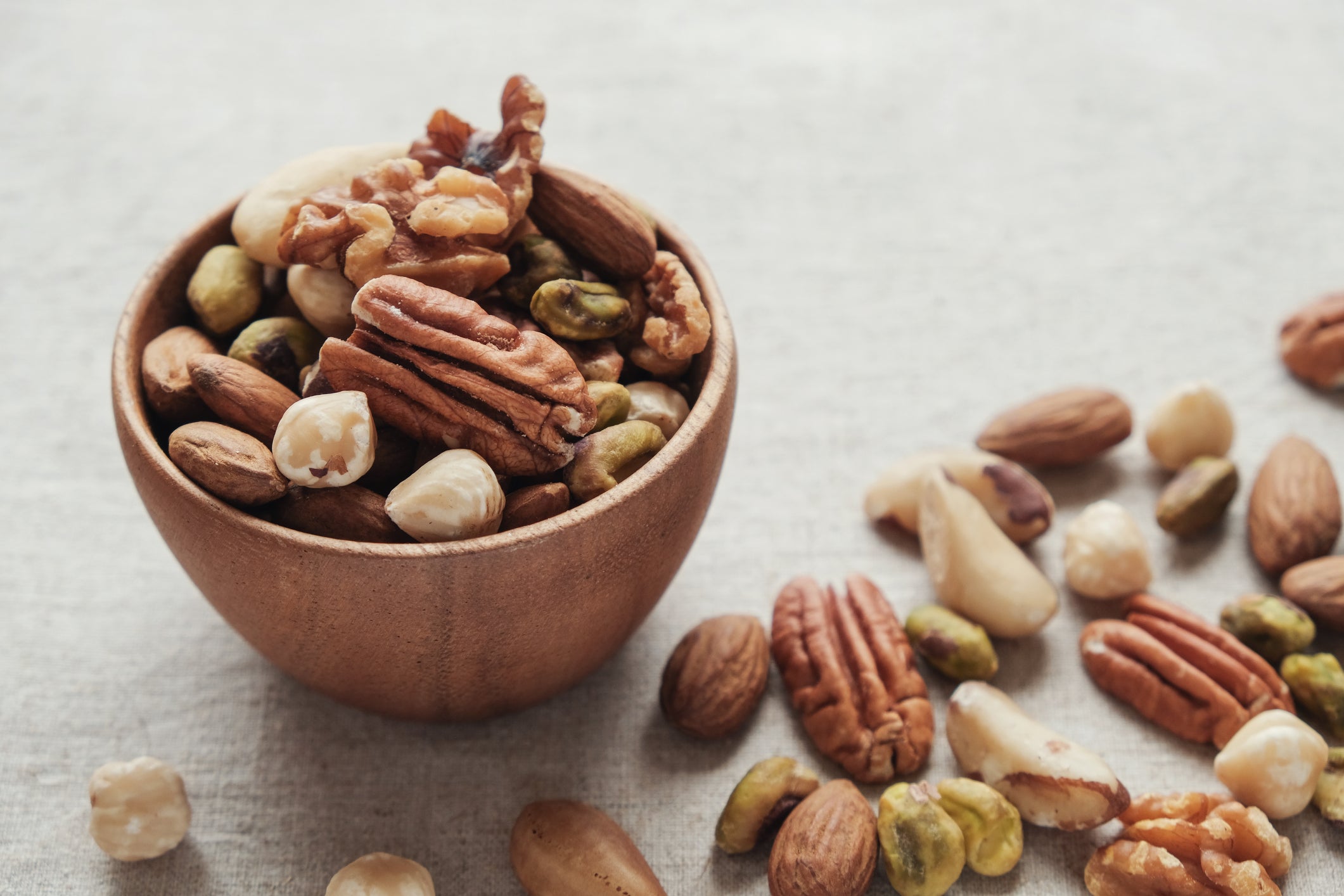Eating a handful of nuts could improve brain function by 60%, says study
The study analysed nine waves of China Health Nutrition Survey data collected over 22 years

Your support helps us to tell the story
From reproductive rights to climate change to Big Tech, The Independent is on the ground when the story is developing. Whether it's investigating the financials of Elon Musk's pro-Trump PAC or producing our latest documentary, 'The A Word', which shines a light on the American women fighting for reproductive rights, we know how important it is to parse out the facts from the messaging.
At such a critical moment in US history, we need reporters on the ground. Your donation allows us to keep sending journalists to speak to both sides of the story.
The Independent is trusted by Americans across the entire political spectrum. And unlike many other quality news outlets, we choose not to lock Americans out of our reporting and analysis with paywalls. We believe quality journalism should be available to everyone, paid for by those who can afford it.
Your support makes all the difference.Long-term, high nut consumption could be the key to better cognitive health in older people, according to a new study.
Dementia is a syndrome associated with an ongoing decline of cognitive functioning, according to the NHS. Alzheimer’s Society estimates there are around 850,000 people in the UK living with symptoms of dementia.
However, researchers from the University of South Australia have found that eating nuts may help boost brain function in old age.
For the study, published in The Journal of Nutrition, Health and Ageing, researchers looked at the effect of eating nuts in 4,822 Chinese adults over the age of 55.
They found that eating more than 10 grams of nuts a day – the equivalent of two teaspoons – was positively associated with improved thinking, reasoning and memory.
Researchers also found that the same amount of nuts could improve older people’s cognitive function by up to 60 per cent, compared with those who don’t eat nuts, “effectively warding off what would normally be experienced as a natural two-year cognition decline”.
The study analysed nine waves of China Health Nutrition Survey data collected over 22 years, and found that 17 per cent of participants regularly ate nuts (mostly peanuts).
Peanuts are widely believed to be an excellent source of anti-inflammatory and antioxidant effects which Dr Li believes may help to alleviate and reduce cognitive decline.
“Nuts are known to be high in healthy fats, protein and fibre with nutritional properties that can lower cholesterol and improve cognitive health,” lead researcher Dr Ming Li says.
“While there is no cure for age-related cognition decline and neurogenerative disease, variations in what people eat are delivering improvements for older people.”
Di Li adds that the study is the first to report a link between cognition and nut intake in older Chinese adults.

"Population ageing is one of the most substantial challenges of the 21st Century,” Li says.
Li note that the over-ageing population is a “massive issue" in China "as the population is ageing far more rapidly than almost any other country in the world".
"Improved and preventative health care - including dietary modifications - can help address the challenges that an ageing population presents," she adds.
China has one of the fastest growing ageing populations. In 2029, the country’s population is forecasted to reach 1.44 billion, according to latest UN figures.
By 2050, 330 million Chinese people will be over aged over 65, and 90.4 million will be over age 80, representing the world’s largest population of this most elderly age group.
The World Health Organisation (WHO) estimates the number of people living with dementia in the worlds is estimated at 47 million, and is projected to rise to 75 million by 2030. The number of cases of dementia are also estimated to almost triple by 2050.
“As people age, they naturally experience changes to conceptual reasoning, memory, and processing speed. This is all part of the normal ageing process,” Dr Li says.
“But age is also the strongest known risk factor for cognitive disease. If we can find ways to help older people retain their cognitive health and independence for longer – even by modifying their diet – then this absolutely worth the effort.”
Find out more information about mental health issues faced by ageing populations, including dementia, on the NHS here.
Join our commenting forum
Join thought-provoking conversations, follow other Independent readers and see their replies
0Comments